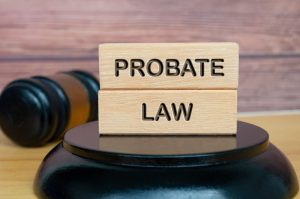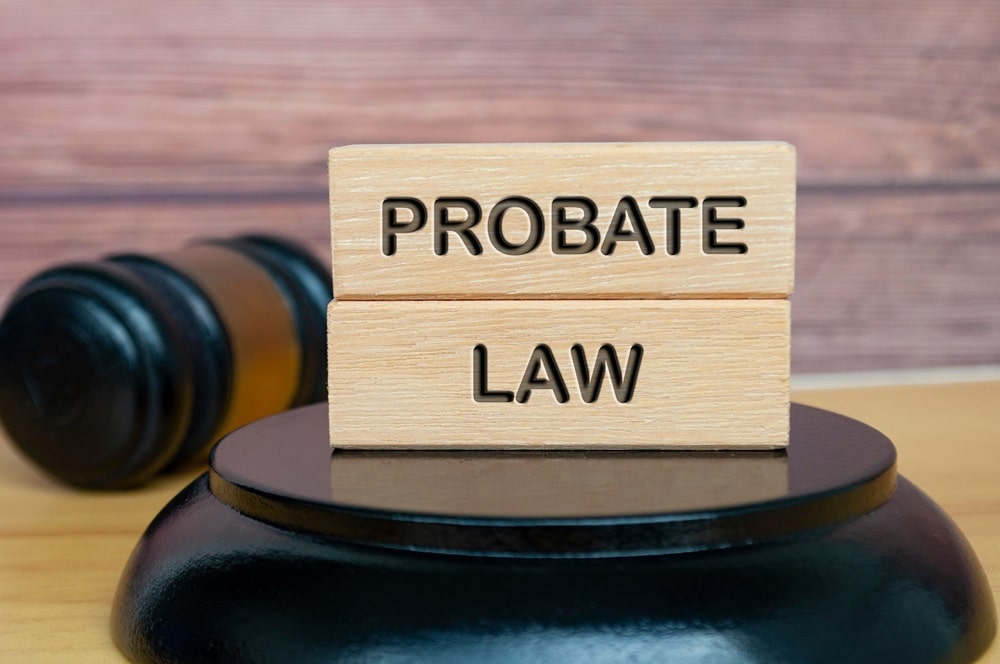Probate in Pleasant Hill is a court-supervised process that brings order to a difficult transition, translating a person’s final wishes—or state law when there is no will—into practical steps for distributing property and settling debts. For most families, the challenge is less about the legal theory and more about the timelines, forms, and coordination required to keep the process moving. This guide breaks down what probate is designed to accomplish, what executors must do, and where disputes often arise so you can anticipate issues before they snowball. You’ll also find an overview of filing deadlines and ways to prevent administrative errors that commonly delay cases in Contra Costa County. If you’re looking to minimize stress and protect estate value, firms like Barr & Douds Attorneys can help you align tasks with local court expectations and avoid avoidable missteps.
How California Probate Ensures Proper Asset Distribution
California probate ensures that assets are identified, debts are paid, and remaining property is distributed to the correct heirs and beneficiaries, either under a valid will or via intestate succession rules when no will exists. The court’s oversight is designed to prevent self-dealing, double payment of liabilities, or the accidental omission of rightful heirs. In Pleasant Hill matters, this typically involves filing a petition in the Contra Costa County Superior Court, providing notice to interested parties, and obtaining court authority to act on behalf of the estate. Once an executor or administrator is appointed, they must marshal assets, secure property, and maintain appropriate insurance until distribution. When a will exists, the court validates it; if it does not, California’s intestate statutes determine who inherits, with special attention to community property rules for married decedents.
What probate actually does in California
After appointment, the personal representative collects and values the estate, often using court-appointed or licensed professionals to complete the Inventory and Appraisal. Creditors are notified and given a statutory period to submit claims, ensuring that legitimate debts are paid before heirs receive distributions. If real property must be sold, the Independent Administration of Estates Act (IAEA) can streamline sales, sometimes without separate court confirmation if full authority is granted. Assets that transfer outside probate—like properly funded trusts, payable-on-death accounts, or life insurance with named beneficiaries—can reduce the court docket and cost, but the representative still must account for all probate assets. In this structured framework, the court’s role is to confirm the representative’s authority, protect beneficiary interests, and ensure the estate winds down in a way that’s transparent and consistent with California law.
Executor Duties and Responsibilities in Pleasant Hill Estates
Serving as an executor or administrator means accepting a fiduciary duty to act in the best interests of the estate and its beneficiaries at every turn. Practically, that involves filing the initial petition; publishing notice; safeguarding property; and handling routine estate expenses, taxes, and creditor claims. Executors must keep meticulous records, from receipts and bank statements to correspondence and formal accountings, as these documents support court filings and final distributions. They also must communicate with beneficiaries, explaining timelines, providing updates, and addressing reasonable questions about the process. Good executors are planners: they sequence tasks, calendar deadlines, and address dependencies—such as appraisals and tax filings—before requesting distributions or closing the estate.
From paperwork to people management
Two of the most overlooked executor responsibilities are cash-flow management and conflict prevention. Estates often need liquidity to pay taxes, insurance, mortgage payments, or urgent repairs; an executor may need to consolidate accounts or sell assets to cover costs while maintaining fairness among heirs. Communication minimizes misunderstandings that can escalate into formal disputes, and timely notices help preserve rights while keeping the process predictable for everyone involved. Executors should also understand the court’s expectations for the final accounting, which must detail receipts, gains, losses, fees, and proposed distributions; courts prefer clarity and consistency over improvisation. When questions arise—such as handling a jointly owned rental property or a late-discovered asset—experienced guidance helps executors decide whether to seek court instructions or proceed under existing authority.
Timelines and Filing Requirements Families Should Prepare For
Probate timelines in California vary based on estate complexity, court calendars, and how quickly the personal representative acts. After filing the petition and providing notice, the appointment hearing usually occurs within several weeks, depending on the docket. Once Letters Testamentary or Letters of Administration are issued, a four-month creditor claim period generally begins, during which the representative must notify known creditors and evaluate claims. The Inventory and Appraisal is typically due within four months of appointment, though extensions may be available for unusual assets or appraisal complications. For smaller estates under the statutory threshold, summary procedures or affidavits may avoid full probate altogether, but eligibility must be carefully confirmed.
Key timing checkpoints and practical tips
Success in Pleasant Hill probate often comes from building a calendar that accounts for statutory windows and the tasks required to meet them. For example, waiting to schedule appraisals or gather financial statements can compress the timeline unnecessarily and push the estate against deadlines for inventory or tax filings. Families should plan for interim court reviews if the estate requires asset sales, complex creditor negotiations, or disputes about distributions. If the decedent owned real estate, the representative should also anticipate property tax filings and title work to avoid last-minute delays at distribution. When timelines are tight or filings become intricate, retaining a Probate Attorney Pleasant Hill can help keep the paperwork synchronized and ensure that required notices and forms meet Contra Costa County requirements.
Understanding Will Contests and Disputes Between Beneficiaries
Disagreements most often arise over the validity of the will, the interpretation of ambiguous terms, or perceptions of unequal treatment among heirs. California law provides avenues to challenge a will for lack of capacity, undue influence, fraud, or improper execution, but the burden of proof and deadlines are strict. Once a will is admitted to probate, interested parties have limited time to seek revocation or file objections, and failing to act promptly can foreclose claims. Even when a will is valid, conflict can persist if beneficiaries disagree about asset valuations, liquidation decisions, or personal property allocations. The executor’s neutrality and transparency can often diffuse tension, but formal mediation or court intervention may be necessary when positions harden.
Common grounds and practical realities
In Pleasant Hill cases, courts expect clear, factual support for allegations—medical records, witness testimony about the decedent’s capacity, or evidence of coercion if undue influence is claimed. Many disputes stem from informational gaps: beneficiaries may distrust valuations if appraisals aren’t shared, or they may question sales if they feel excluded from key decisions. Sharing the Inventory and Appraisal, summarizing creditor claims, and explaining the rationale behind liquidation choices can preempt friction. When litigation is unavoidable, realistic assessments of cost, time, and risk help families choose between settlement and trial. Professional teams, including experienced counsel such as those at Barr & Douds Attorneys, can coordinate evidence gathering, manage discovery, and steer negotiations to protect estate value while respecting beneficiaries’ rights.
Role of Professional Guidance in Preventing Administrative Errors
Probate is document-heavy, deadline-driven, and detail-oriented, which is why professional guidance is as much about process management as it is about legal analysis. Common errors include missing publication requirements, sending notices to incorrect addresses, misclassifying community versus separate property, or failing to obtain necessary appraisals. Each mistake can trigger delays that compound fees and extend the personal representative’s responsibilities. Professionals help executors triage tasks, select vetted appraisers or accountants, and monitor compliance with local rules in the Contra Costa County Superior Court. They also translate technical requirements—like bond waivers, partial distributions, or petitions for instructions—into actionable steps tailored to the estate’s facts.
How counsel reduces risk and keeps matters on track
Attorneys not only prepare and review filings; they also anticipate points of friction, from beneficiary communications to real-property sales under the IAEA. They can coordinate with financial institutions to streamline asset access and set up estate accounts that provide clean audit trails for the court. When creditors submit questionable claims, counsel helps evaluate validity, negotiate settlements, or litigate if necessary, always with an eye toward preserving the estate’s bottom line. Professional oversight also increases the quality of the final accounting, reducing objections and accelerating the path to discharge of the personal representative. In Pleasant Hill, partners like Barr & Douds Attorneys bring local familiarity that helps families avoid detours and achieve timely, well-documented resolutions.
How Proper Probate Management Preserves Family Wealth
Well-managed probate protects value by minimizing avoidable costs, preventing tax mistakes, and maintaining assets in good condition until distribution. Executors who act quickly to secure property, keep insurance current, and address repairs help avoid loss from damage or depreciation. Smart sequencing—such as closing unnecessary accounts, consolidating cash, and planning asset sales for market conditions—supports liquidity without sacrificing price. Attention to tax timing can add significant value: reporting basis correctly for a step-up on appreciated assets, filing final income tax returns accurately, and considering portability or elections when applicable. Every hour saved on delays and disputes is an hour that reduces holding costs and administrative fees.
Practical strategies families can use now
Families in Pleasant Hill can start by gathering key documents early—wills, trust certificates, deeds, account statements, and insurance policies—so the personal representative can file promptly and confidently. Establish a centralized communication plan for beneficiaries, summarizing milestones and decisions to avoid rumors or confusion that lead to conflict. Use qualified appraisers for significant assets, particularly real estate or collectibles, to support valuations and eventual sales. If questions arise around property tax reassessment, spousal property rights, or intergenerational transfers, consult a Probate Attorney Pleasant Hill to avoid irreversible missteps. When coordination gets complex or emotions run high, engaging Barr & Douds Attorneys gives families a structured pathway to finish the process with records in order, risks mitigated, and the estate’s value preserved for those it was meant to benefit.









